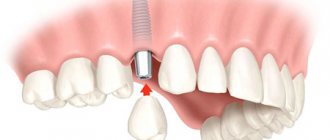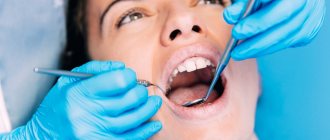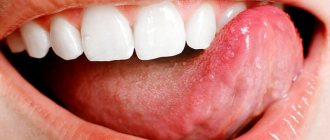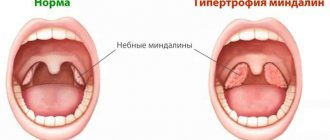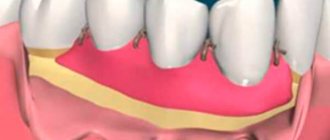It's no secret that if you manage to find a good dentist, you need to be friends with him and stick with him as long as possible. After all, healthy teeth are not only beautiful, but also the key to comfortable eating and good general health for many years. That is why how to choose the right dentist in Moscow (as in any other city) is a very important question.
Today we will tell you 10 main signs that you are lucky and you have really found your specialist who you can trust with the health of your oral cavity and what is in it. If you need a dentist in Yugo-Zapadnaya and other administrative districts of Moscow, then this article is for you!
Availability of clients in queue
A good specialist cannot necessarily work in an expensive, private hospital. It is possible that your future dentist works in a public hospital. Although, if a clinic respects its reputation and its clients, it always tries to lure a good specialist. Ask your friends which doctor they use. As a last resort, you can use Internet search engines. Call a specialist and ask for an appointment. If he is a truly respected and good doctor, there will be a queue. So, the appointment will be scheduled in 1-2 days. Possibly in the evening.
Dentists in Moscow
Who is a dentist?
There is hardly a person today who does not know what toothache is. At times it seems that such torment is impossible to bear. And we rush to see the dentist, despite all our dislike for the drill, choosing the lesser of two evils. After just half an hour or an hour, a smile appears on the sufferer’s face again.
When to go to the dentist?
And yet, few of us immediately go to the doctor after discovering a hole in one of our teeth. We are in no hurry to make an appointment, and at this time caries does not sleep, turning a small hole into a huge hollow. Perhaps a motto hanging over every dental office would help patients overcome fear: “We hurt people so that they can live well later.” Yes, yes, these very words of the hero A. Myagkov from Ryazanov’s comedy “The Irony of Fate”, spoken about surgeons, are perfectly suitable for dentists.
As a rule, when visiting a dental office, we most often encounter a dental therapist. This is a doctor who deals with the prevention and treatment of teeth in order to increase their service life; his profession is one of the main links in an integrated approach to ensuring the patient’s dental health.
If the tooth cannot be saved and its removal or prosthetics is required, the patient is referred to another specialist - a dentist with the prefix “surgeon”, “implantologist”, “orthopedist”.
Typically, patients in Moscow go to a dental clinic with complaints of toothache, a fallen filling, or swelling of the gums around the tooth. Mothers bring their babies to the children's office when the first signs of teething appear.
In adult patients, the dentist most often diagnoses diseases such as caries, periodontitis and pulpitis.
How to become a dentist?
The Moscow State Medical and Dental University is rightfully considered the most prestigious medical institute in the capital for future dentists. The First State Moscow Medical University also trains specialists in this area. I. M. Sechenov, Russian National Research Medical University named after. N.I. Pirogov and some other universities in Moscow. Dental faculties are isolated from other future specialized specialists, and this is understandable, because dentistry as a science is quite specific.
The best specialists in Moscow
The origin of dentistry as a science dates back to the reign of Peter I. It was then that the outstanding Dutch dentist N. Bidloo came to Russia, becoming a court physician. In 1707, he founded the first hospital and school of medicine in Moscow, paying considerable attention to dental issues. The capital is rightfully proud of such outstanding dentists as N.I. Pirogov, I.V. Buyalsky, I.M. Kovarsky and others who made a significant contribution to the development of dentistry as a science in Moscow.
Treatment of permanent teeth in children
Permanent teeth, like baby teeth, also require careful care and sometimes treatment. At the initial stage, caries therapy can be carried out using methods such as:
- Silvering, which has an antibacterial effect and helps stop the process of further destruction of the enamel.
- Remineralization is carried out for children who attend primary school.
- Ozone therapy is a painless method that does not injure the oral cavity.
For superficial caries, a popular method is fluoridation or filling. Medium and deep caries require a more serious approach to treatment - here safe fillings containing silicophosphate cements are installed. To clean the dental canals, depophoresis with a calcium solution is used. Finally, laser therapy is well suited for the treatment of permanent teeth. It helps to forget about the drill and scalpel, but this method is used in children over 7 years old.
Dental restoration
Orthopedic dentistry and implantology have wide possibilities for restoring any number of missing teeth in a row. Depending on the patient’s wishes, specialists may offer:
- installation of crowns and bridges;
- installation of single implants and conditionally removable dentures on implants;
- production and fixation of clasp dentures;
- production of complete removable nylon dentures or acrylic structures, etc.
Implantation is deservedly considered the most effective way to restore teeth. This is explained by the advantages of the method: implantation of an artificial root into the bone tissue prevents its reduction, this design is reliable and durable.
The choice of a specific prosthetic method is determined by the individual characteristics of the dental system, the wishes and financial capabilities of the patient.
Reviews
Much has been said here about the importance of reviews. Leave your impressions of visiting dentists under the article, share your experience or recommend a really good specialist!
If you find an error, please select a piece of text and press Ctrl+Enter.
Tags teeth
Did you like the article? stay tuned
Previous article
Luxnir - a flawless smile in two visits to the dentist
Next article
Unique properties of Forfenan paste for use in endodontic dentistry
When do you need an appointment with a dentist?
A visit to such a doctor should be made if:
- in the absence of complaints, for the purpose of clinical observation every 6 months;
- the appearance of bad breath;
- bleeding gums;
- loose tooth;
- the appearance of white spots on the enamel;
- the formation of soft plaque or tartar on the surface of the teeth;
- increased sensitivity of teeth;
- the appearance of chips and other defects in the tooth body;
- for toothache of any nature.
How caries is treated today for young children under 7 years old
According to statistics, caries is one of the most common diseases in children. It proceeds differently for each preschooler, which requires a different approach to each child. Often, only the restorative procedures described above are sufficient. But sometimes a full-fledged complex therapy with fillings and further preventive monitoring of the oral cavity is required.
Treatment of caries in children is carried out with filling material, which is based on glass ionomer cement. One of the representatives of this group is the drug Vitrebond. With its help, treatment is carried out in a short time, and small lesions under this material are restored quickly and painlessly.
How are children's teeth treated in modern dentistry? The most popular method is chemical-mechanical. A medicinal gel is applied to the infected tooth, which allows you to remove damaged dentin painlessly and without the use of drills. In this case, only dead tissue is removed, so the child does not experience any discomfort or pain. Then the tooth, cleaned of carious surfaces, is filled.
The air-kinetic method allows you to clean a carious cavity using a stream of water, air and abrasive particles that enter the mouth under pressure. This jet, directed at the affected area, “washes away” caries. However, this method is effective only at the initial stage of the disease.
But here another question arises - how is pulpitis of baby teeth treated in children? It will not be possible to do this in one visit to the dentist, since the therapy is carried out in several stages. Treatment can be conservative or surgical, but the second method is not used for baby teeth. Therefore, if conservative treatment for pulpitis does not bring results, it is better to remove the affected tooth.
How to treat the teeth of a child 3 years old or older so that he is not afraid and does not cry? Laser technology helps here. Such devices are not installed in all clinics, but in large cities they are available.
And finally, the use of ozone allows you to quickly and painlessly clean the carious cavity and destroy all microbes that cause the destruction of enamel.
At what age can teeth be treated?
At what age do children have their teeth treated? This is a question that interests all parents of preschool children.
While the child is breastfed, such a need does not arise, especially since the first teeth begin to appear no earlier than 6 months from birth. But as soon as the child begins to eat at the common table and tries food familiar to the family, parents need to be attentive to the condition of the teeth. Problems with them begin when the body begins to lack minerals. The most dangerous period is from 5 to 14 years.
Therefore, as soon as the baby turns 1 year old, he needs to visit the dentist’s office every 6 months for preventive purposes. Caries or pulpitis of baby teeth detected at an early stage can be treated much easier and faster than advanced cases.
Useful tips
Once you have successfully chosen the specialist that suits you, it makes sense to follow certain recommendations:
- Before your first appointment, ask your friends or relatives for feedback. Their good or bad experiences can save you from trouble.
- The best option is to see the whole family at one dentist. Then he will be able to understand the problems typical for the whole family and give individual advice.
- If you are facing long and expensive treatment, it is better to keep financial records. It will be useful to you in case of attempted fraud or when the cost of treatment is reimbursed by the insurance company.
- Follow all the dentist's requirements during treatment. By not following the rules prescribed by the dentist, you risk ruining the result of the entire treatment.
The video provides additional information on the topic of the article.
Field of professional activity of a dental surgeon
The competence of a dental surgeon includes the following responsibilities:
- examination, diagnosis of oral diseases;
- planning of invasive intervention;
- carrying out planned surgical operations (cystectomy, flap plastic surgery, gingivectomy, gingivotomy, hemisection, others);
- provision of emergency surgical dental care;
- treatment of fractures, jaw dislocations;
- removal of teeth, fragments, destroyed roots (if it is impossible to carry out tooth-preserving manipulations);
- introduction of conduction and infiltration anesthesia;
- invasive treatment of congenital and acquired pathologies of teeth and periodontium;
- performing operations to remove cystic formations, tumors (benign and malignant);
- providing advisory support to fellow dentists of other specialties.
In addition to dental surgery, the specialist has perfect knowledge of anatomy, physiology, and pathological physiology. He must be able to work with various dental instruments and equipment, determine pathology from X-rays, understand the indicators of laboratory tests, know the purpose, methods of taking medications, and much more.
In what cases should I contact
Patients are referred to the surgeon's office (from dental specialists of other specialties) if there are indications for invasive interventions. This happens for reasons:
- the crown part of the tooth is destroyed without prospects for its restoration;
- preparation for implantation, prosthetics;
- maxillofacial trauma;
- benign, malignant neoplasms;
- infections of the salivary glands, oral cavity, jaw;
- congenital defects of the lips, palate, frenulum;
- the need to remove the eighth teeth in a row;
- significant mobility of segments;
- indications for reconstructive surgery in the face and jaw.
You can routinely contact a dental surgeon for a follow-up examination after surgery. Before visiting a doctor, you must stop taking anticoagulants and alcohol 2-3 days before. On the day of your appointment, do not smoke, have a good breakfast, and brush your teeth.
Our dental center welcomes highly qualified dental surgeons who provide the full range of services within the competence of this specialty. Modern technologies, the latest equipment, and the best medications make it possible to carry out invasive interventions in a comfortable environment, without pain.
Prevention and early diagnosis
Modern standards for the prevention of caries, gingivitis, periodontitis and other diseases imply regular professional cleaning of the oral cavity. This is necessary both for those who carefully observe the rules of hygiene at home, and for those who suffer from increased plaque formation.
Complete removal of soft dental deposits at home is almost impossible; even with a properly selected brush and toothpaste, hard-to-reach places are less susceptible to cleaning. Plaque can be completely removed only in a dental office. As a rule, if the initial condition of the oral cavity is good and there are no dental structures (braces, retainers, etc.), it is enough to do this twice a year. Such measures will prevent the appearance of tartar, and therefore significantly reduce the likelihood of developing caries, periodontitis, periodontal disease and other serious diseases.
In the event that tartar has already appeared, ultrasonic technology will come to the rescue. It can be combined with the Air Flow method, which removes soft plaque. In combination, impressive results can be obtained.
Early diagnosis of inflammatory diseases of soft tissues, as well as carious lesions of the enamel, allows timely action to be taken and complications to be prevented. A careful examination by an experienced dentist makes it possible to suspect the onset of a disease or identify risks, which means taking the necessary measures in a timely manner.
A reliable doctor always works with quality guarantees
If it is necessary to remove a tooth, the cost and expectation of pain, as well as the fear of complications, often cause the patient to be afraid to go to the clinic.
In our dentistry, everything is created in order to create psychological comfort for the patient. Very high-quality anesthesia, real professionals with many years of experience and modern equipment allow painless removal of any complexity. The financial benefit of visiting our clinic is that the doctor guarantees the absence of complications, and therefore you will not have to visit the dentist again and again. Our specialists can solve dental problems of any complexity without the slightest difficulty.
